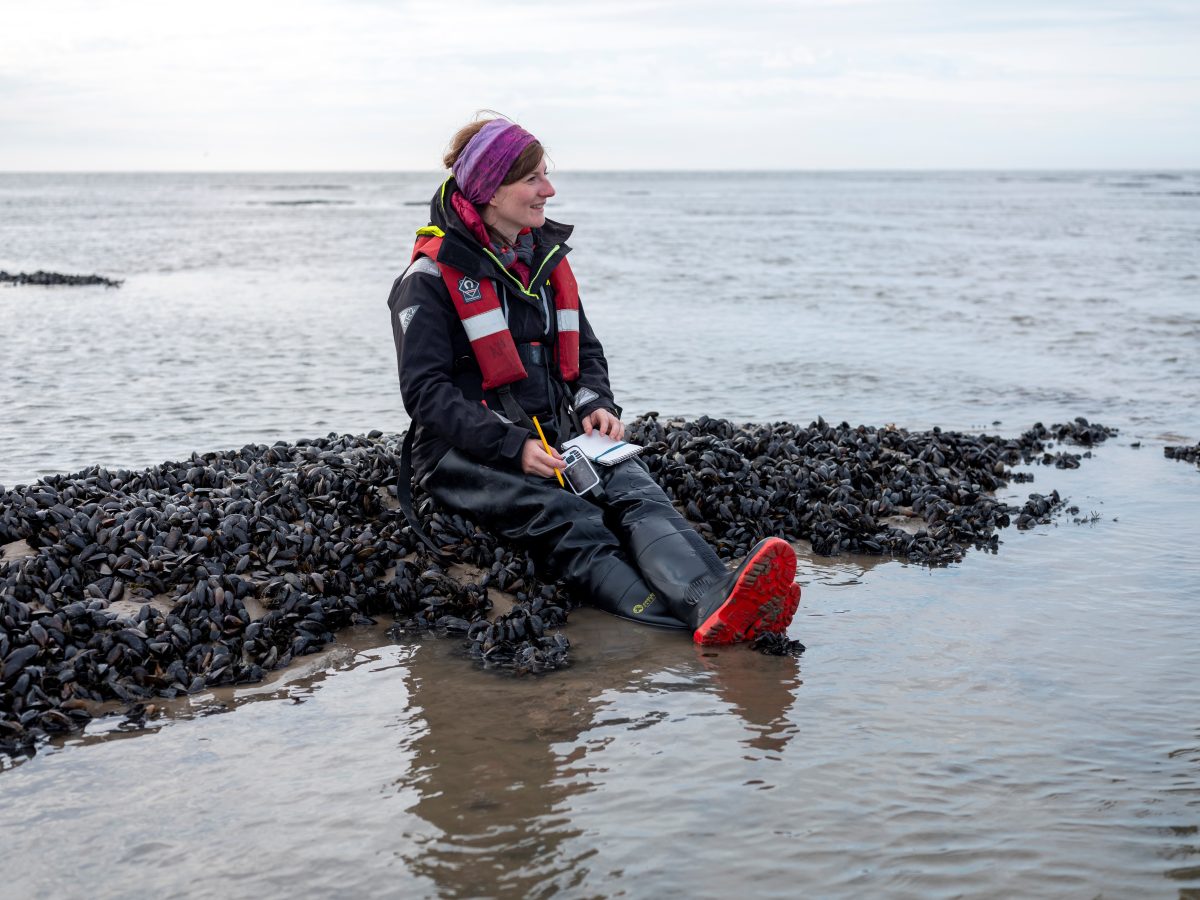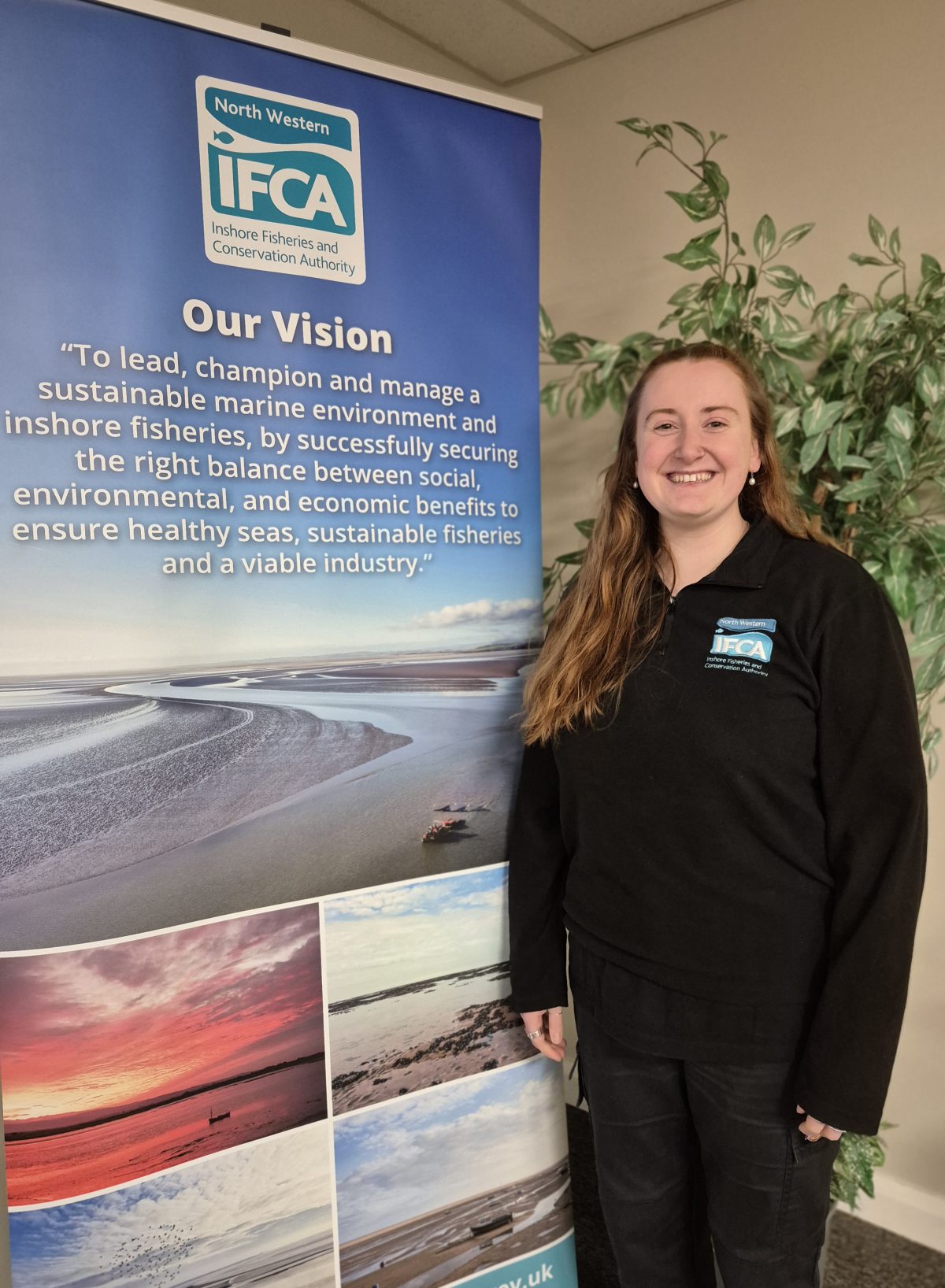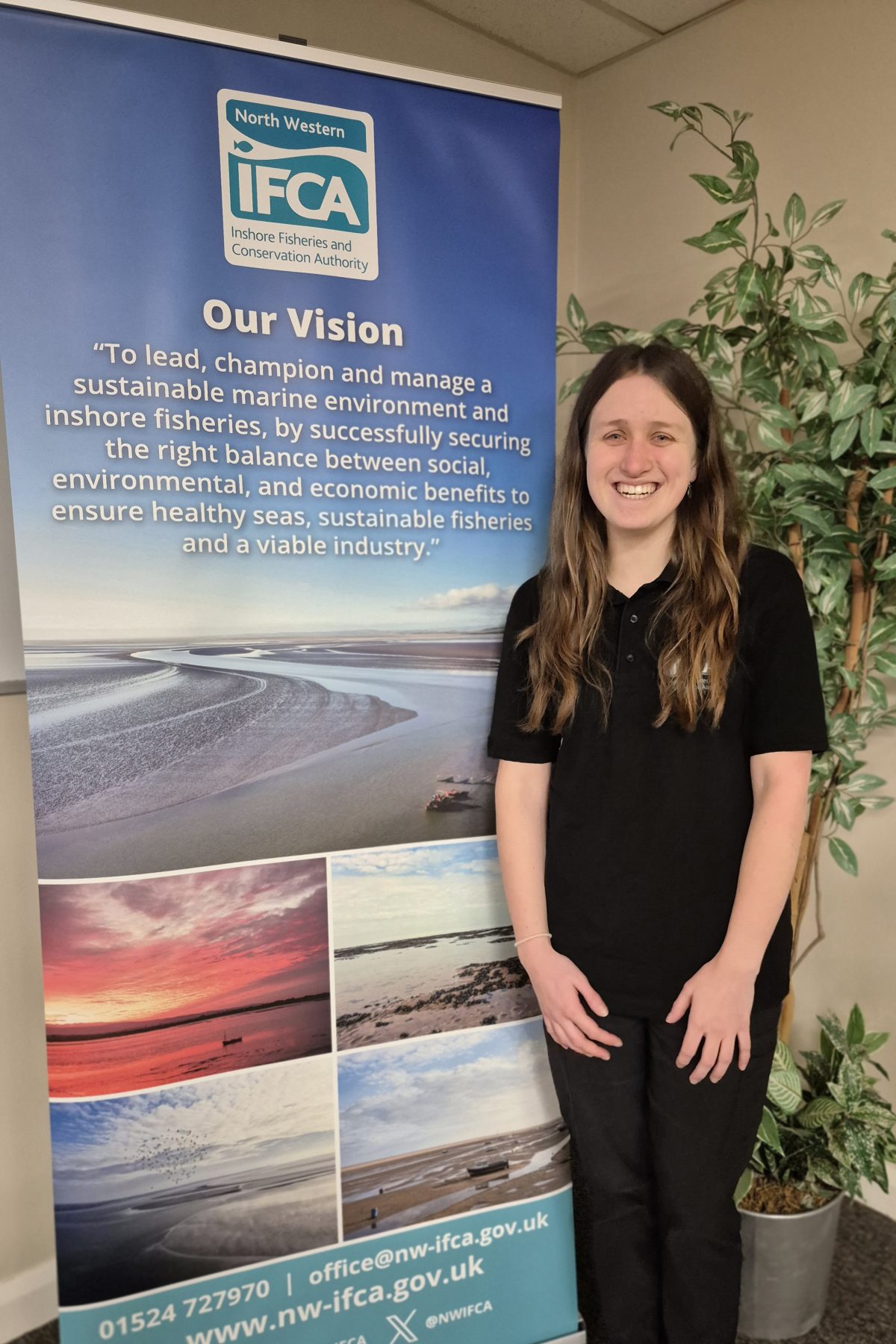International day of Women and Girls in Science
Here at NWIFCA we are proud to showcase the work our science officers carry out throughout the year. Below are the profiles of our female science officers and the important work that they have been involved and continue to pursue.

At NWIFCA I lead the Science team to undertake work on the districts main fisheries, including research projects, habitat assessments, and surveying. I have always had an interest in marine science and research, and hope that through this work I can contribute to its conservation and restoration given the many threats it faces today.
Before working at NWIFCA, I spent three years at Kent and Essex IFCA as a Science Officer, undertaking a variety of surveys on cockles, whelks, oysters and small fish. For much of this time I was involved with a two-year European marine funded whelk research project that aimed to establish a suitable minimum conservation reference size for the whelk in the district.
Prior to IFCAs I studied for an MSc in Marine Environmental Management at the University of York, where I researched and published work on the historical impact of fishing, and the need for more ambitious conservation objectives to restore habitats to their natural state. I also previously worked for a consultancy firm in Scotland, and with the University of Aberdeen looking at how marine infrastructure projects are managed in protected sites.
Currently, my main focus at NWIFCA is developing a cockle fisheries management plan to help with effective management in the district, and supporting the team in their various projects, all of which aim to improve our management.

I chose to go into science because, from a young age I’ve always been fascinated by animals, their behaviour and how they interact with their environments. I liked the idea that I could make a positive impact and contribute to conservation through science.
Prior to working at NWIFCA, I worked at Menter Mon in the environmental team, working on a project that safeguarded the endangered water vole population. I gained a BSc in Marine Biology and Zoology and wrote my dissertation on the impacts marine vessels have on cetacean behaviour. I spent three months working with the Madagascar Research & Conservation Institute conducting surveys on local reefs around Nosy Komba, volunteered with a turtle conservation project in Nusa Penida, carried out biodiversity surveys in Sulawesi with Operation Wallacea, and spent a year as a zoo animal management volunteer at Banham Zoo.
I am currently working on a project researching the size-at-maturity of whelk species within the NWIFCA district. This research will help us establish an appropriate minimum conservation reference size for the whelk fishery in the district.

Growing up near the coast I have always been interested in the marine environment. I decided to pursue a career in the marine environment and studied Marine Biology at Southampton university. Here I completed research on the impacts of environmental conditions on the reproduction of jellyfish and a second project looking at the immune response of shore crabs to different pathogens.
I also volunteered as part of the marine protected areas team for a charity, Save the Med, which focussed on protecting marine areas with a strong connection to local communities. This lead me to an interest in the relationship between the marine environment and human activities and needs.
Since joining the IFCA my main work has been investigating the current state of the brown shrimp fisheries in the NW through stakeholder engagement and a literature review.